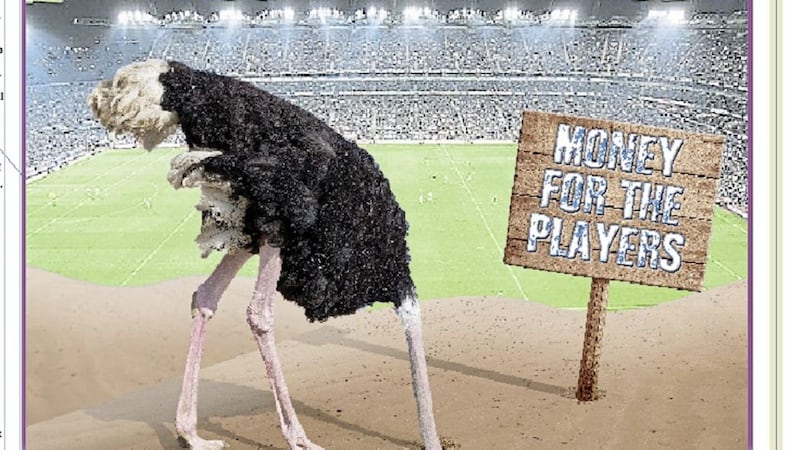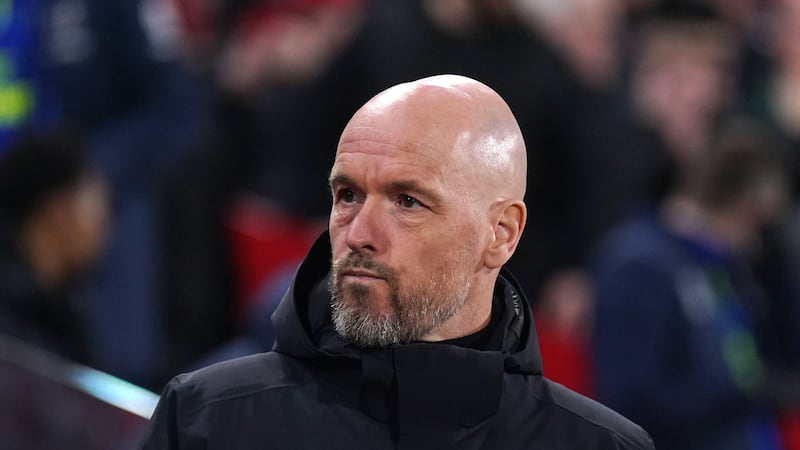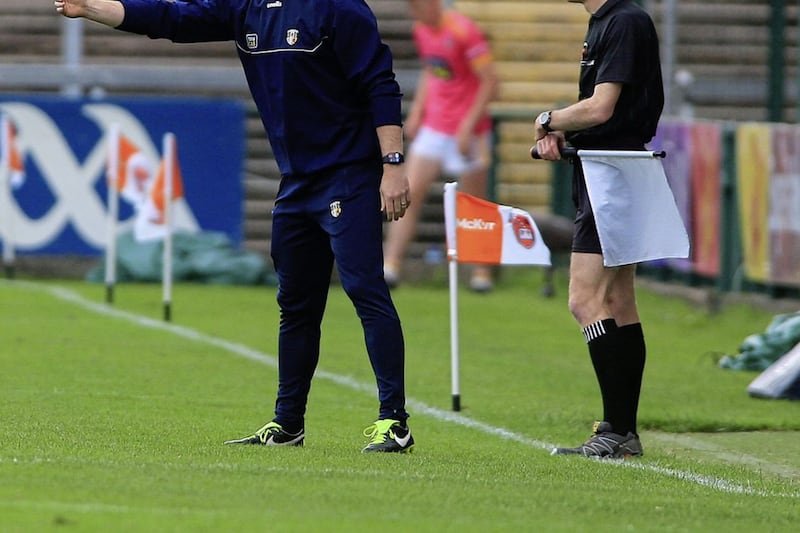‘THE greatest amateur sporting organisation in the world’. It really is an impressive claim.
The sheer numbers participating. The level of facilities that practically every club has been able to develop. The impact clubs and counties can have on their community. The sense of identity. The sense of joy. The strength that the association gives to us all is truly remarkable. All of course done under an amateur ethos, voluntarily, for the collective good of our clubs, counties or association.
That last line. There is something about it which can at times ring hollow. Under the ‘amateur ethos’ tag dwells a huge white elephant increasingly making a home for itself in the GAA.
As club AGMs take place up and down the country, there is, of course, a strong and beating volunteer heart to things – but it doesn’t take much scratching below the surface to find exceptions to the rule.
I remember watching the Olympics when I was young and the discussion coming up on the TV regarding how impressive the levels attained by these amateur athletes were.
Even back in the ’80s, before the sporting world had morphed into the commercial juggernaut it is today, it seemed amazing to think that these athletes were not being paid. Of course, even by that stage, the Olympic amateur dream had already begun to break up.
The admission of professional soccer and tennis players to the Los Angeles Games in 1984 was a key change in policy.
Once the money gates were opened, it didn’t take long for it to become a flood. Now the Olympics, like the World Cup, seem more about money than sport.
In the GAA world, the initial dripping of money to players and officials has already turned into a steady stream.
The argument about whether there should be monetary exchanges in an amateur association is somewhat moot. Full-time secretaries and officials within the GAA get paid.
In an association which is effectively a multi-million pound industry, it requires very senior people doing senior work. It cannot be run for free.
County secretaries being remunerated is again a natural consequence of the amount of work required and realising that many county boards have turnovers registering in the millions.
So to an extent – and while somewhat unfair on the club officers putting in similarly huge effort – paid officials makes sense.
If we accept the reality of payment for officials, then what about the same for managers and players?
Of course, as part of the ‘nudge, nudge, wink, wink’ philosophy regarding payment, the official line is that no manager is actually paid but rather are entitled to ‘expenses’.
Given at senior level there are managers receiving tens of thousands of pounds at club level and some understood to be nudging six figures at county level, ‘expenses’ must be regarded as a fairly loose term.
Of course, being realistic, senior management is a massive undertaking, even at club level.
At county level it is similar in many ways – not least time – to a senior management position in many jobs. As Stephen Rochford said earlier this year, the scrutiny, pressure and media attention even outweigh that faced by many politicians.
So, given the miles, time and pressure associated with management jobs, is it wrong for people, especially ‘outside men’, to receive a bit of remuneration? It’s hard to argue against it.
The issue is that surely it cannot be healthy to continue turning a completely blind eye and trying to cover it up under the catch-all umbrella of ‘expenses’.
The argument, of course, is that the players don’t get paid and it is the non-payment of players that means the games are very much still amateur.
Does the same argument apply to the Olympics then? Athletes do not directly get paid for taking part or winning gold medals, but the endorsements, grants and spin-offs associated with it means no-one considers the top athletes to be amateur.
The big question for the GAA is at what stage do we realise that some of our top GAA players are not essentially bona fide amateur?
When touring with the Irish International Rules team in Australia, one of the conversations that came up was appearance fees. I mentioned that back in the ‘noughties’, the Tyrone team agreed a plan that if a player was going somewhere the fee would be between £150 and £200 with half going to the player and half to the team.
Those present laughed at the amount, saying a Dublin player is on at least £1,500 per appearance. Now think back to how many times this year you have opened a paper to see players standing for photo-shoots. It soon adds up. That’s even before we get to advertisement campaigns.
Back in my playing days, I was aware of commercial initiatives from which players were receiving somewhere in the region of £15,000 to £20,000.
Given that in every country in the world sports stars are a key option for advertising and promotion agencies, it’s inevitable that in Ireland a significant chunk of that rising pie will be heading to GAA players.
Already, top GAA players are fronting an ever increasing number of campaigns and the sums involved are no longer the few innocent pound it once was – five figure sums are standard for any decent campaign.
If you consider it was hard to go to Dublin this year and not see an advertising billboard with a familiar GAA face on it, then it’s easy to conclude that individual earnings could be into six figures.
It is still obvious that this line of income has grown very significantly and I think it is one that has some way to go yet.
Is this wrong? There has always been a prevailing attitude that if a top player gets a few pounds then fair enough, it’s well deserved. As the reaction to Colm Cooper’s testimonial dinner shows, there appears a natural limit or at least a sense of unease with this.
For me, it is a major issue but one without clear rights and wrongs. I do feel, however, that the ‘see no evil, hear no evil’ approach can’t continue forever.
The sporting world has moved on. Inevitably the GAA has as well. It just seems it’s a bit too complicated to shift from the party line of the great amateur association, so the policy is to brush things under the carpet for another while.
The problem is the cash pile is getting bigger and becoming harder to ignore.
Our greatest claim is of being amateur players, yet there is no barrier in place to stop this becoming a mere charade.
The association can still thrive in this new era and it need not lead to the greatest taboo of all – pay-for-play. The ostrich’s head-in-the-sand approach, though, is not the best way of handling this changing world.







